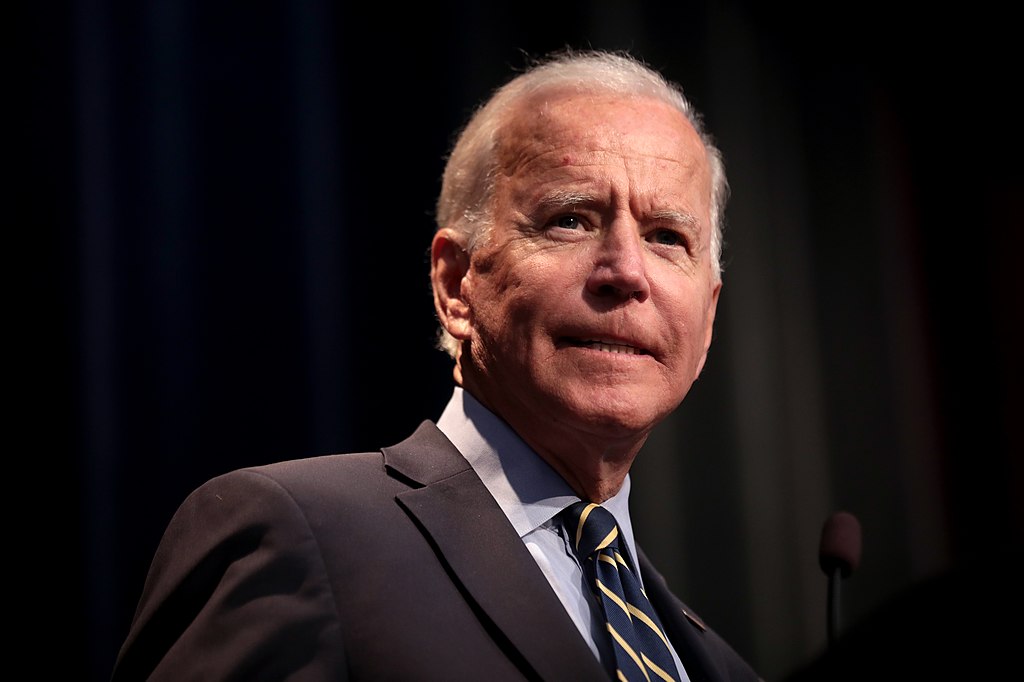The Biden administration is finalizing new electric vehicle tax credit rules, slashing the list of eligible models to just 13. This update, part of a broader effort to refine economic incentives before the election, significantly focuses on sourcing and geopolitical considerations, impacting several major automakers.
New Restrictions Target Battery Components, Impacting EV Eligibility and Automaker Strategies
The guidelines, proposed by the administration in December, set new restrictions on a credit of up to $7,500 per vehicle, providing a strong incentive for drivers interested in electric cars but put off by their high cost. According to Bloomberg, the restrictions prohibit tax benefits for automobiles containing battery components or crucial minerals from "foreign entities of concern" – government jargon for corporations owned by US geopolitical enemies like China.
Automakers like Tesla Inc., General Motors Co., and Toyota Motor Corp. lobbied hard on the standards. Even in their planned form, they have had an impact. The restriction on battery components took effect on January 1 and significantly reduced the number of vehicle models eligible for the tax credit. The critical mineral restriction is set to take effect in 2025.
The decision comes as the deadline for finalizing regulations to make them less vulnerable to repeal if President Joe Biden loses reelection in November expires before the summer.
Stricter EV Tax Credit Standards Slash Eligible Models, Prompt Automaker Supply Chain Adjustments
Early this year, reports show that the number of electric vehicle models qualifying for a $7,500 consumer tax credit reduced substantially after the new Biden administration guidelines took effect on January 1.
According to federal data from fueleconomy.gov, narrower requirements reduced the number of qualifying models to 13, down from approximately two dozen. Under the new standards, vehicles with battery components manufactured in China are not eligible for tax credits.
Treasury Department spokesperson Ashley Schapitl stated that the government has collaborated closely with corporations on the new limits. However, some companies have yet to submit data, which may result in additional data being added to the list.
"Automakers are adjusting their supply chains to ensure buyers continue to be eligible for the new clean vehicle credit, partnering with allies and bringing jobs and investment back to the United States," she said.
Treasury Department restrictions issued last month target battery components manufactured by any company subject to Chinese jurisdiction or owned at least 25% by the Chinese government. In 2025, the limits will be extended to encompass suppliers of critical raw materials for batteries, such as nickel and lithium.
Depending on the location of the battery component and part production, automobiles may be eligible for a $7,500 or $3,750 tax credit.
The Tesla Model Y, Rivian Automotive's R1T pickup truck, Stellantis' Jeep Wrangler 4xe, and Ford's F-150 Lightning pickup truck are among the vehicles that remain eligible for full or partial consumer financing.
Models that lost access to credit included Tesla's Cybertruck and some variants of its Model 3, Nissan's Leaf, Ford's E-Transit van, and General Motors' electric Blazer and Silverado.
The new criteria were inserted into President Biden's flagship climate measure at the request of Sen. Joe Manchin III, the West Virginia Democrat who voted on the Inflation Reduction Act. Manchin expressed concern that American taxpayers were supporting batteries made in China.
Photo: Gage Skidmore from Peoria, AZ, United States of America, CC BY-SA 2.0, via Wikimedia Commons



 OpenAI Expands Enterprise AI Strategy With Major Hiring Push Ahead of New Business Offering
OpenAI Expands Enterprise AI Strategy With Major Hiring Push Ahead of New Business Offering  Federal Judge Rules Trump Administration Unlawfully Halted EV Charger Funding
Federal Judge Rules Trump Administration Unlawfully Halted EV Charger Funding  SpaceX Pushes for Early Stock Index Inclusion Ahead of Potential Record-Breaking IPO
SpaceX Pushes for Early Stock Index Inclusion Ahead of Potential Record-Breaking IPO  Ford and Geely Explore Strategic Manufacturing Partnership in Europe
Ford and Geely Explore Strategic Manufacturing Partnership in Europe  Court Allows Expert Testimony Linking Johnson & Johnson Talc Products to Ovarian Cancer
Court Allows Expert Testimony Linking Johnson & Johnson Talc Products to Ovarian Cancer  SoftBank and Intel Partner to Develop Next-Generation Memory Chips for AI Data Centers
SoftBank and Intel Partner to Develop Next-Generation Memory Chips for AI Data Centers  Google Cloud and Liberty Global Forge Strategic AI Partnership to Transform European Telecom Services
Google Cloud and Liberty Global Forge Strategic AI Partnership to Transform European Telecom Services  SpaceX Prioritizes Moon Mission Before Mars as Starship Development Accelerates
SpaceX Prioritizes Moon Mission Before Mars as Starship Development Accelerates  SoftBank Shares Slide After Arm Earnings Miss Fuels Tech Stock Sell-Off
SoftBank Shares Slide After Arm Earnings Miss Fuels Tech Stock Sell-Off  Instagram Outage Disrupts Thousands of U.S. Users
Instagram Outage Disrupts Thousands of U.S. Users  Jensen Huang Urges Taiwan Suppliers to Boost AI Chip Production Amid Surging Demand
Jensen Huang Urges Taiwan Suppliers to Boost AI Chip Production Amid Surging Demand  American Airlines CEO to Meet Pilots Union Amid Storm Response and Financial Concerns
American Airlines CEO to Meet Pilots Union Amid Storm Response and Financial Concerns  Nvidia, ByteDance, and the U.S.-China AI Chip Standoff Over H200 Exports
Nvidia, ByteDance, and the U.S.-China AI Chip Standoff Over H200 Exports  Hims & Hers Halts Compounded Semaglutide Pill After FDA Warning
Hims & Hers Halts Compounded Semaglutide Pill After FDA Warning 































